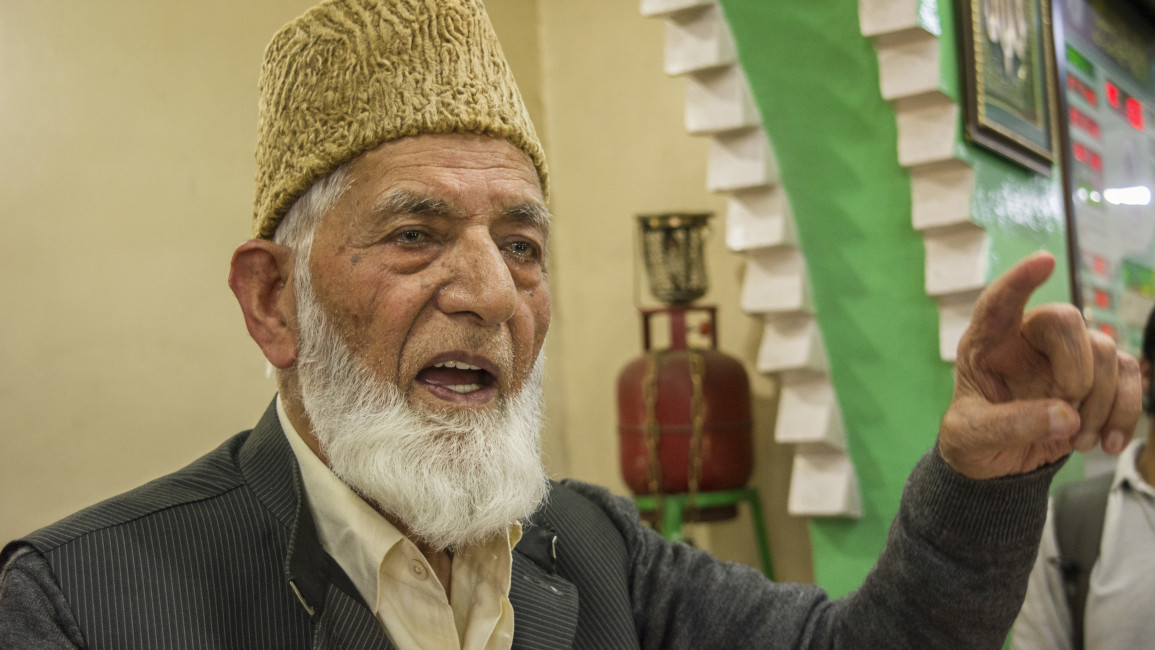Security clampdown in Indian Kashmir after death of separatist icon Geelani
Indian authorities imposed a security clampdown in disputed Kashmir late Wednesday after the death of separatist icon Syed Ali Geelani at the age of 92, residents said.
Troops put up barbed wire and barricades on roads leading to Geelani's house in the main city of Srinagar after the family announced the death. Hundreds of security forces were immediately deployed and media reports said a curfew would be imposed and internet services cut.
Announcements were made from loudspeakers of the main mosque near Geelani's residence asking people to march towards the house. But scores of armoured vehicles and trucks patrolled main roads in the area. Police appealed for people not to go out on the street.
Geelani, an uncompromising campaigner against Indian rule in the Muslim-majority Himalayan region divided between India and Pakistan since 1947, had been under house arrest for the past 11 years. He had been ill for several months.
Geelani had been a thorn in India's side since the early 1960s when he began campaigning for the territory's merger with Pakistan. He also pursued his separatist calls as a member of the Kashmir assembly.
The veteran politician was jailed for nearly 10 years after 1962 and often restricted to his home after that.
Since his youth Geelani had been a member of Jamaat-i-Islami, the largest political-religious organisation in Indian Kashmir that was banned by the Hindu nationalist government in 2019.
Geelani was a staunch critic of the sporadic but failed attempts at dialogue between India and Pakistan -- both nuclear armed -- who fought two of their three wars since independence over Kashmir and came close to a fourth one in 2016.
Kashmir is one of the world's most militarised zones, with 500,000 Indian security forces deployed in the region.



